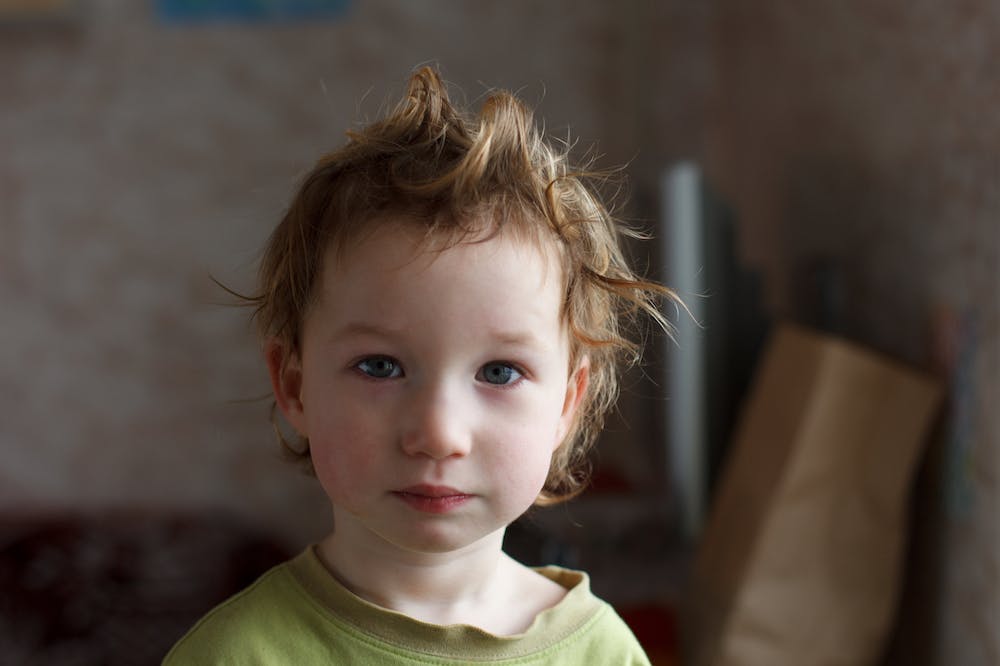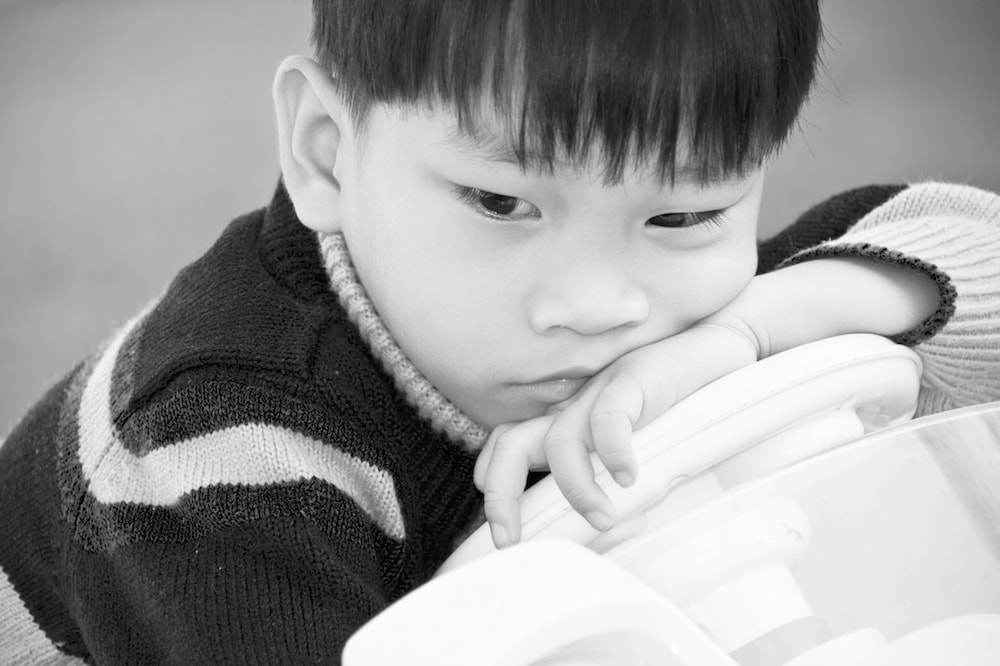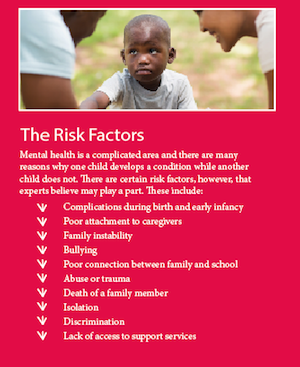
According to the Mental Health Foundation, nearly one in 10 children and young people aged five to 16 are affected by a mental health problem
Our formative years shape who we are, and while Happiful believes it’s never too late to seek support, the general consensus is that early intervention and the right guidance offers a greater quality of life. This means recognising the risk factors, putting protective factors in place, addressing mental health issues in family conversations, and reaching out for support when necessary. Let’s now look at some common mental health concerns that affect our children, and discover what we can do to ensure we’re raising them to be as happy as possible.

ANXIETY
As a child, having worries is natural. The world can be a scary place at times. But when these worries begin to pile up and affect a child’s wellbeing, they can quickly evolve into anxiety. For children, this feeling of fear and panic can be very confusing, and very overwhelming. In the UK, anxiety disorders are believed to affect 5–19% of all children and adolescents and around 2–5% of children aged 12 or under. The most commonly seen in children is generalised anxiety disorder (GAD). This is when someone feels anxious all the time without any clear source. Talking therapies like cognitive behavioural therapy (CBT) can help children manage their anxieties, and parents are encouraged to get involved.

ATTACHMENT DISORDER
We all make attachments to our caregiver or parents. This attachment helps us feel safe and secure, allowing us to grow, learn and try new things while feeling supported. For some children, however, things don’t go as planned, and this initial attachment isn’t formed. Support and education (if required) of the family is key, with play therapy and family therapy often used in tandem to help children recover.
BEHAVIOURAL PROBLEMS
Behavioural problems, or “disruptive behaviour”, covers a wide range of concerns, including difficulties managing anger, and conduct disorder. If your child’s behaviour is very out of the ordinary, it could be worth seeking additional support, such as CBT. Research shows conduct disorders are more common in boys than girls. Of those aged five to 10, 7% of boys and 3% of girls have conduct disorders.
BEREAVEMENT
Death and loss is hard at any age, but is particularly difficult for children to negotiate. Reacting strongly is quite normal. Remember, children are suddenly dealing with new and potentially disturbing emotions. They may benefit from further support when grieving. Keeping communication open is key.

BULLYING
Some may think bullying is simply a “right of passage”, but the truth is, bullying can be incredibly damaging to young people’s mental health. In a survey carried out by Counselling Directory, counsellors said 72% of their bullying-related clients originally sought help for a different reason (such as anxiety and depression). This implies that many adults come to identify bullying in childhood as a contributing factor to present-day mental health problems.
Nearly half of all children are affected by bullying at some point during school, either as the victim or as the bully. Talking to children about the subject of bullying can help them feel more comfortable discussing it – and don’t be afraid to approach schools for further intervention.
DEPRESSION
One of the most common mood disorders, depression is estimated to affect almost one in four people before they turn 19. Many features of depression are similar to feeling sad, but if your child is experiencing these low feelings for long periods of time, it’s worth seeking help.

Children may also show more physical symptoms that may initially seem unrelated. For example, they may say they feel sick, have a tummy ache, or complain of headaches more often. Encouraging conversation about feelings and emotions early can help children feel more comfortable talking about feeling low. Talking therapies are recommended to help children overcome depression. Medication is rarely offered to young people; however, in some cases, it may be advised (especially if it’s used to help other mental health conditions too).
EATING DISORDERS
While eating disorders typically develop during adolescence, they can occur as early as six-years-old. There are many reasons why someone develops an eating disorder, regardless of cause – research suggests early intervention improves chances of recovery. Essentially this means, the earlier you address the problem, the better. If you are concerned about your child’s eating habits, speaking to your GP is a good place to start. They can refer your child to eating disorder specialists and guide you towards support for yourself and other members of the family.

LEARNING DIFFICULTIES
A learning difficulty is when someone has difficulty developing their knowledge and skills to the level expected of their peers. An example of learning difficulties would include dyslexia and attention deficit disorder (ADD). Having a good support network from family, teachers and doctors helps children with learning difficulties flourish.
SELF-HARM
Self-harm is when someone hurts themselves on purpose. This can include cutting, scratching and hair pulling. It can be incredibly distressing if you suspect your child is self-harming. There are several reasons why someone may start to self-harm; usually it’s a coping mechanism to help them deal with difficult emotions.
Showing your support and not being judgemental is key.
SEPARATION ANXIETY
It’s natural for children to feel a sense of anxiety when they’re separated from their parents, and is a normal stage of development. It’s common in children aged between six months and three years, and they tend to grow out of it. But if their anxiety worsens as they grow older, visit your GP. They may recommend relaxation techniques, or suggest CBT.
Remember, professionals are here to help you and your family. Don’t be afraid to reach out for support. Visit Counselling Directory.

